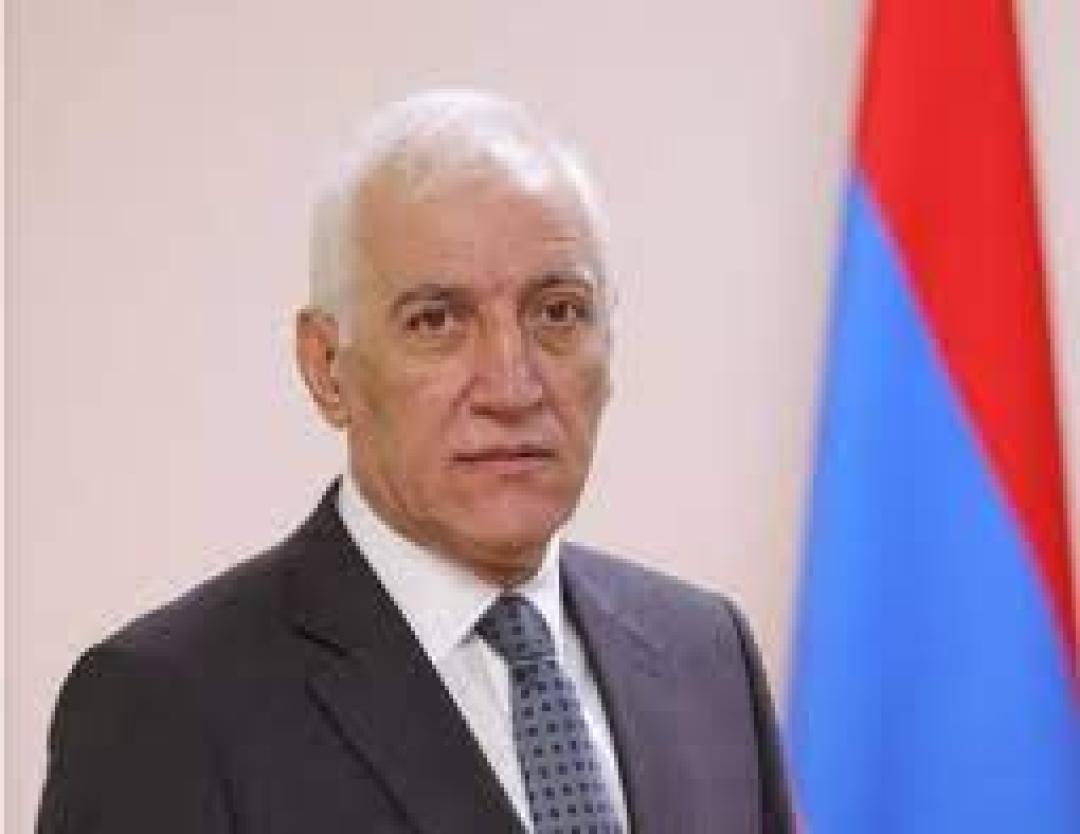
President of Armenia: “Sanctions against Russia will hit our financial system”

Sanctions against Russia create serious risks and threats for the Armenian economy, and the likelihood of many unpredictable phenomena has increased according to the new President of Armenia Vahagn Khachatryan.
An economist by profession, the new head of the parliamentary republic (his inauguration took place on March 13) believes that not a single economic analyst could have imagined that Russia, Armenia's largest trading partner, could be under such restrictions from the West in an extremely short time. The current situation does not fit into any economic framework, Khachatryan stressed.
“Of course, we can partially predict the consequences, but believe me, it is impossible to fully evaluate them. We must be able to prepare our system, especially the financial system, so that it can serve ordinary citizens of Armenia and those people who moved to Armenia in order to start a business here,” he said.
The restriction of financial flows will have a negative impact on Armenia. The situation is somewhat reminiscent of the early 1990s. At that time, the financial system of the Transcaucasian republic, which had declared independence, was just being formed. And for financial flows, not current electronic systems were used, but “manual” methods - money was transported in bags, Khachatryan recalled.
Armenia adapting migrants from Russia to the new economic situation
Economic problems and rising unemployment in Russia, which may arise as a result of Western sanctions unprecedented in their severity, will also negatively affect the socio-economic situation in Armenia. A similar opinion was expressed by Karlen Khachatryan, head of the Department of Economics and Management at Yerevan State University.
“Economic problems in Russia will significantly affect the income of our compatriots who are employed in the Russian market. Transfers from the Russian Federation account for more than 40% of the total volume of private cash receipts to the republic. Consequently, the financial condition of the families of labour migrants will also worsen. And this, in turn, can reduce domestic consumption,” the Armenian economist noted.
As for the problems with food security in Armenia, he stressed that experts have been expressing their concern in recent days, but local officials consider such a development of events unlikely.
Meri Hovsepyan, an employee of the Amberd Research Center, in turn, noted that if an economic decline of 6-10% is recorded in Russia, as some experts predict, then in Armenia it will be 4-6%.
Supply routes have already been disrupted, and the export of Armenian products to the Russian and Ukrainian markets has been significantly reduced. Sanctions have a negative impact not only on the economic situation in Russia and its trading partners, but also on the global economy, including countries that have imposed sanctions, she stated.
At the same time, Hovsepyan suggested that Armenia could get some benefit from the current situation if it could arrange the export of Armenian products, and also take advantage of the flow of labour migrants from the Russian Federation, Belarus and Ukraine to Armenia.
“These are mainly representatives of the IT sector; they open enterprises in Armenia and try to establish work here. It is necessary to carry out such work so that short-term profit turns into a long-term investment,” says Hovsepyan.
However, Khachatryan believes that the flow of specialists to Armenia from neighbouring countries is temporary.
“Perhaps they will stay for 15-20 days and, with the help of organisations registered in Armenia, they will try to establish contact with their partners and return to Russia. A significant part of the money earned will be spent in the Russian Federation, while Armenia will benefit in the form of taxes and fees paid here. So don't expect any boom,” he warns.
See Also


Armenia Records 5.9% GDP Growth in 2024, Missing 7% Goal

Yerevan Balances Strategic Ties with Both US and Russia, Says Foreign Minister

FM Mirzoyan: Peace Deal with Azerbaijan Is Within Reach

Pashinyan and Erdogan Hold Call, Reaffirm Commitment to Ongoing Dialogue

